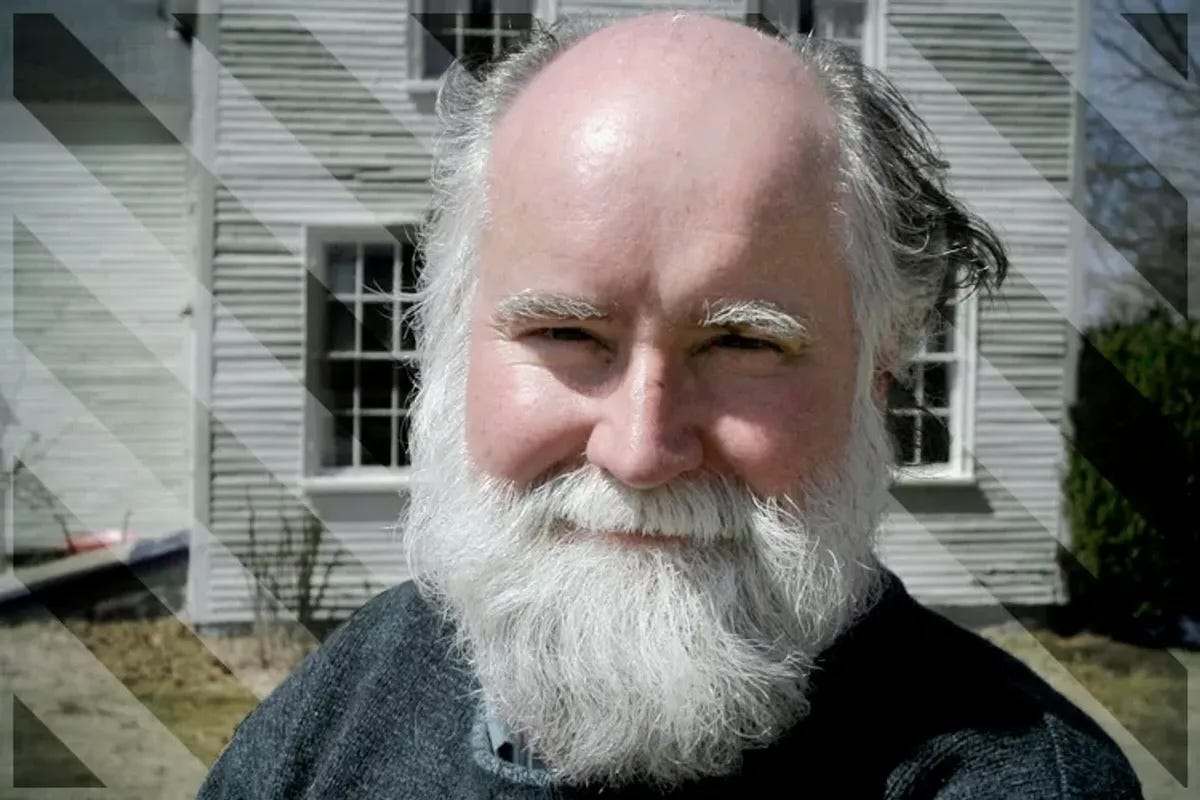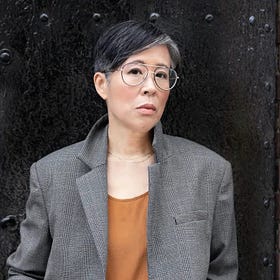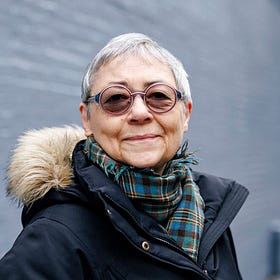Nicholson Baker on Unsung Delight
"I wanted make a fuss with a pencil over some piece of life that has not been drawn."
Friends!
Yesterday was the solstice, marking the first official day of summer. May yours be full of lime popsicles. I’ve been training my mind today toward small details: the way a fly has curiously but peacefully made a home in one of the peonies we brought inside from the garden; the spooky geometry of a garlic bulb; the fact that on the vernal equinox, the sun hits corners in your house that it does on no other day of the year.
The inspiration for this detail-oriented gaze is this week’s interview with Nicholson Baker, the consummate writer’s writer. More writers have messaged me since the episode dropped on Wednesday than for any other interview we’ve released — just to tell me how much they love him and how influential his work has been for them.
That’s how I feel, too. Baker is a genius of noticing, and he has devoted many of his 17 books (novels and nonfiction) to slices of life that might seem pedestrian: early morning meditations, the peculiar movement of bodies on escalators, the secret history of microfilm, the lexicography of dirty talk, and so on.

We talked a little bit about his desire to celebrate the unsung details of life in both his writing and his drawing— Nick’s most recent book chronicles his process of teaching himself to make charcoal portraits using a Reddit forum where people post selfies, hoping someone will draw them. His preference was to draw the people who no one else had chosen, the people whose faces had gone unmemorialized.
“I wanted make a fuss with a pencil over some piece of life that has not been drawn,” he says, which is similar to the impulse that leads him to start a book. For his first novel, The Mezzanine:
There were things I wanted to celebrate! For instance, the Panasonic three-wheeled vacuum cleaner, the greatness of this invention that we happened to own, and I put it in the book and it gave me great delight. Or my mother’s technique of slicing a banana. My own use of earplugs. The escalator, the ways people stand on the escalator, the way the handrail moves quicker than the stairs do. All sorts of things I wanted to say that seemed more pressing to be said than the things that other novelists were writing about.”
Have you ever noticed your mother’s technique for slicing a banana? Or the way she spread the peanut butter all the way to the crusts when making a PB&J? Have you ever thought about who drew the pattern for the wallpaper in your childhood bedroom, and the history of that pattern, the history of wallpaper? Or maybe the history of glue, specifically the kind of glue that’s used to hang wallpaper?
This kind of curiosity and attention feels especially writerly to me, though it’s often hard to convince beginning writers that their small fascinations and loves are substantial enough, or capital-I Important enough to write about. Writers like Nicholson Baker (who is just about as decorated with awards as they come) who have made a whole long, lauded career this way, feel like proof and reassurance: these things are important enough! The way your mother cuts a banana is worth making a fuss over in art
The whole episode is a pleasure. You can listen to it here.
In other news:
Thresholds alum and pal Heather Radke made a great episode for Radiolab called “Small Potatoes,” which argues for the kind of story telling that explores the little details normally dismissed as mundane. It’s beautiful.
Another alum and pal, Kaveh Akbar, wrote a moving essay for The Nation about solidarity and manufactured consent. Read it here.
That’s all for now! If you like what we’re up to here, please share the newsletter and the podcast far and wide — it really does help.
Til next week—
Jordan
Sarah Aziza Chooses the Pain of Love
"My intuition and I were still not on very good terms, but I felt my intuition prick at that moment. There was something in me that leapt up."
Lisa Ko Destroys A Lifetime of Journals
"If I didn’t write it down, did it even happen? Would I remember it? What would that mean for me?"
Sigrid Nunez Creeps Along, Line by Line
"I would tell them about a piece of advice I remembered hearing from Mark Strand: When something comes easy to you, pay attention to it, because that’s your gift."






